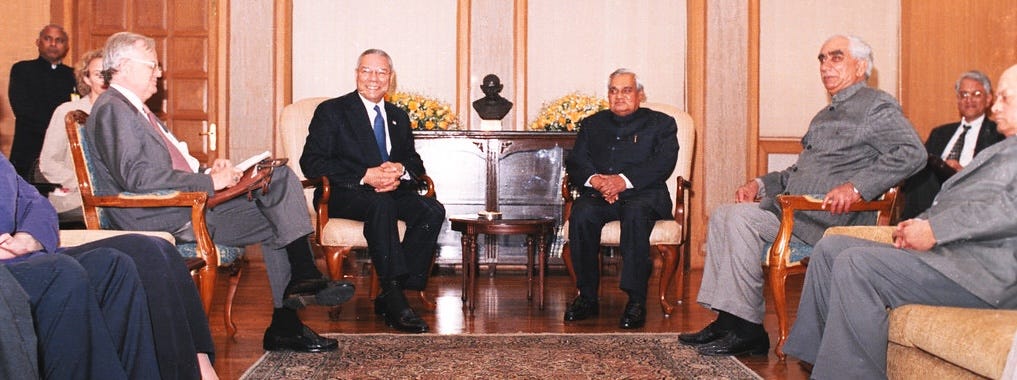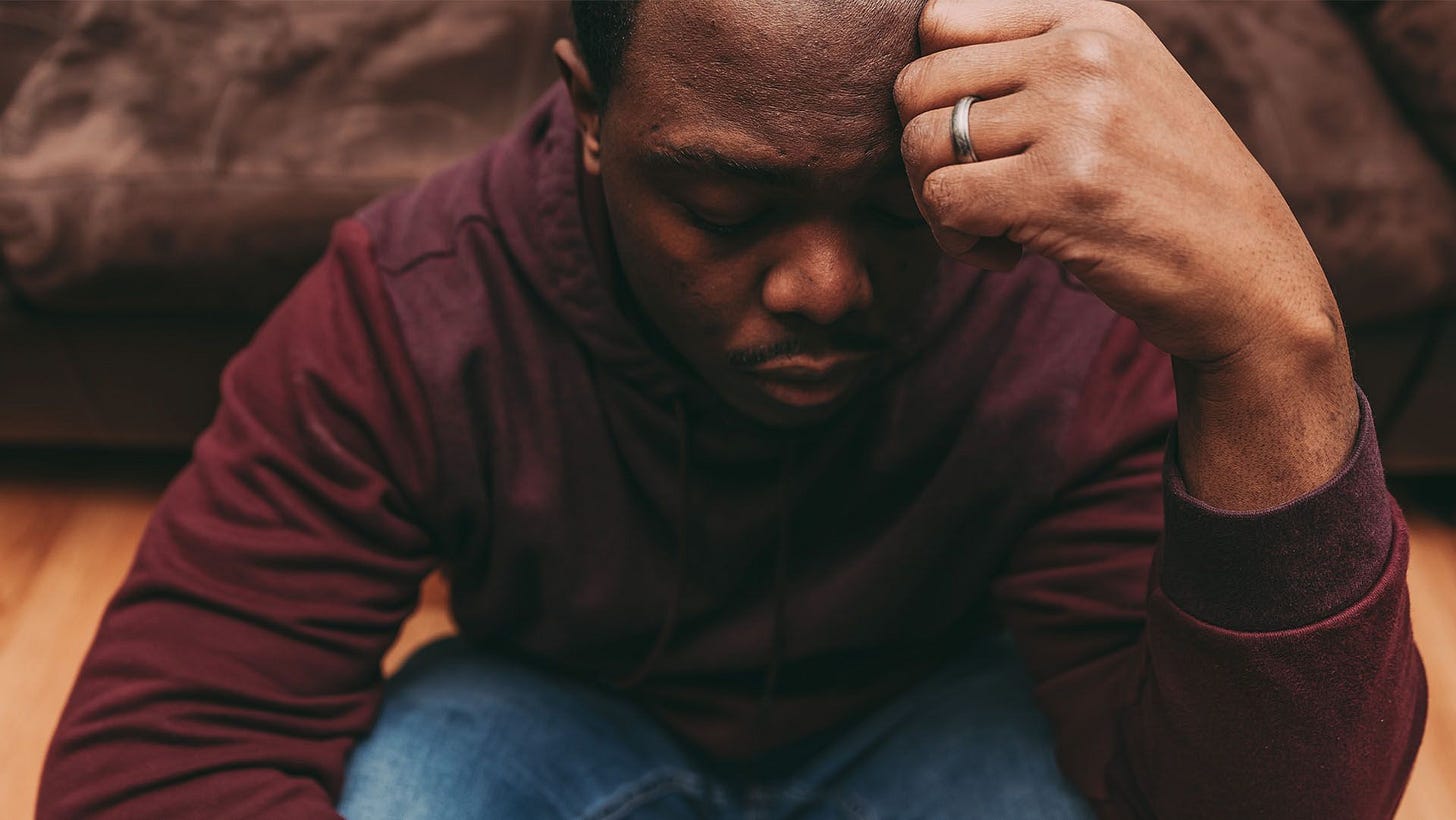Many years ago I spent some time in India, traveling to various cities, recording local musicians and writing songs based on the stories I was encountering. It was a wild and life-changing trip, due to both the beauty of the nation and its music, and also the overwhelming oppression and poverty.
Almost everywhere you looked, the streets were lined with homeless children and cardboard houses, victims of the cruel caste system. The people were beautiful, but the sight was heartbreaking, the filth overwhelming and the noise constant. Nothing can prepare you for sleepless nights in a five-star hotel, overlooking a slum where children are literally playing and living in a pile of trash outside your window.
At one point during our trip, Colin Powell (at that time the U.S. Secretary of State) was going to come to Mumbai for a visit. All of a sudden, certain streets were eerily quiet. Crisp and beautiful. Not a beggar to be seen.
All along the path from the airport to the place where Powell would be staying, to the palace he’d be visiting and back, giant white walls had been erected. The roads had been cleaned and fresh grass laid down, so that the General’s experience of India would be one of serene beauty, while on the other side of the walls lived the heaving throngs of chaos that marked the familiar Indian streets.
My hunch is that General Powell was not fooled by the ruse. Surely, his Indian escorts weren’t either, though maybe, for a minute, looking down those clean, safe streets, they might almost wish they could be.
If so, I would understand. I know that feeling.
My own life has been deeply marked by suffering, and there are many ways I’ve tried to put up my own white walls and keep myself from the truth of my own pain and sadness.
But those Indian walls didn’t address the oppression of the caste system or feed the hungry children, it just hid them from view. Just as hiding from my own loneliness or sadness only made me more miserable and unable to ask anyone for help. It was a spiral that could have had no end, were it not for the kindness of God, caring for me through the loving, pursuing friendships (when I was not always the most eager recipient) of my community.
If you’re old enough to read this sentence, then I imagine you’ve probably suffered in some way, too.
There are things we deeply long for that we may never have. Partners. Children. Career. We’ve lost family and friends too soon. We are plagued by chronic pain, disease, crushing financial burdens, the hidden worlds of abuse and addiction. The broken relationships that refuse to heal no matter what we do.
Suffering is by no means the only prerequisite of being human, but it surely is one of them.
For most of human history, this was an undeniable fact. A general understanding of life. However, our culture has these unique blessings - painkillers, cell phones, air conditioning, airplanes, grocery stores, etc… - which are also in a strange way curses, in that they put cushioning barriers between us and the raw reality of being human. They allow us to live an illusion that suffering is abnormal and out of the ordinary.
Have you felt this mentality even creep into our Sunday morning songs at times? I know I have.
Yet I continue to be amazed by this:
That Jesus became human is the most shocking thing about Christianity. And that he did not come as a conqueror or a king, but as a helpless child, who would go on to live as a refugee and a homeless man before being ultimately abandoned and tortured to death.
In fact, in the Bible we’re introduced to him like this:
He had no beauty or majesty to attract us to him, nothing in his appearance that we should desire him. He was despised and rejected by mankind, a man of suffering, and familiar with pain. Like one from whom people hide their faces, he was despised, and we held him in low esteem. (Isaiah 53: 2-3)
Talk about a first impression.
I’ll be honest, there are days when it can be a little hard to be friends with people who seem like they’ve had a totally easy ride. (Whether or not this is true.) I’m both jealous and confident that they couldn’t really understand my life and what I’ve gone through. Then other times you meet someone and you know that they just “get it”. You’re able to connect and trust each other, because you’ve both been through similar challenges.
This is where Christ meets us, in humility, eye to eye. “A man of sorrows”, as another translation calls him, who endured great pain, with intention, to sit with us when we have no choice left but to be honest about what’s really going on.
Abide with me: fast falls the eventide; the darkness deepens; Lord, with me abide. When other helpers fail and comforts flee, Help of the helpless, O abide with me. - Henry Francis Lyte, 1847
Our pain is not scary for Jesus. It is not unwelcome or unholy.
It is the most sacred and natural way to come before God.
Our deepest hurts and longings are the places closest to the heart of God. They are where we feel the brokenness and the awareness of the beauty of God‘s creation. We feel the heartbreak and longing of God Himself when we muster the courage to look at those deepest hurts and longings and say, in an inverse echo of God himself:
“It was good! It is not as good now as it should be, but it will be again.”
My friends, to not come honestly to God is to deny our humanity, and to deny his sacrificial act of meeting us there. The good news of Jesus is that he came for the broken and the sick. That was the whole point, after all.
And so we bring our pain before him, together as a church, in song. We cry out in our loss, grief and anguish. Even our anger. We call these songs “laments.”
Indeed, one of the first books of the Bible is literally called Lamentations: an entire book full of songs of suffering.
One of the most famous songs of lament handed down to our generation is a hymn called “It Is Well”, written after a two-year span where it’s author, Horatio Spafford, lost his four-year-old son to scarlet fever, his successful real estate business to the Great Chicago Fire, and then his four other children, all daughters, in a shipwreck.
When peace like a river attendeth my way, when sorrows like sea billows roll; whatever my lot, thou hast taught me to say, "It is well, it is well with my soul."
You would think the song ends there, like the stages of grief, in acceptance, but no, the story isn’t over. The following verses actually move forward into themes of sin, redemption and heaven. To sing of suffering does not mean you have to wallow in it and stay there forever. It simply means you are honest about where you are at the moment you are in it.
In some mysterious way, crying out to God, “why have you abandoned me!?” has been for many the pathway to hope, and even, as impossible as it may seem, to joy.
If we try to take a shortcut and jump straight to the victory, as some churches (or radio stations) have chosen to do, we might find that we actually push away those of us who don’t feel very victorious. Which, you know, is most of us, most of the time…
The best Batman movies have the most dangerous villains.
Stories without conflict aren’t stories worth telling.
If we only play songs that are positive and encouraging, are we telling those who listen that their suffering is something that needs to be hidden, or to be ashamed of? Are we putting up white walls which hide our problems and actually keep us from bringing them before God?
A lot of the pain in my life is not mine alone, and I don’t need to tell stories that aren’t mine to tell, but I can tell you this: the ONLY reason I still have a relationship with Jesus is that he was a man of suffering, well acquainted with grief.
Because I am, too.
Let me know what you think about this? Does this strike a chord with you? Too harsh? Too morbid? Too critical? Selfishly, I’d really love your thoughts, suggestions, pushback, encouragements, whatever… to help me be a better writer.
Also, here’s a fun little thing. My instrumental project “the quiet hours” has been chugging along slowly, just a small steady number of listeners, then all of a sudden, a week or two ago, this one song got on a playlist in a couple countries overseas somehow and people are starting to listen. I don’t know, but it’s kind of fun. I’m just continuing to put these out and enjoying to both make them and listen to them myself as I write.
I hope this song can give you a few moment’s peace today. Especially for those of you who, like me, have found this to be an incredibly sad, discouraging, and, yes, lamentable week.
Grace and Peace to you, my friends. Have a great weekend.








I so appreciate this essay, Andrew, as I find it a telling of truth honestly, humbly and graciously. That truth being that suffering is so much woven into our lives, even as we try to avoid it through our actions, choices and formulas, through distraction, numbing and denial, through blaming and punishing those around us. I can see how I've fallen into each of these traps, trying to wall off my own experience of suffering, disappointment, and loss.
I have not really thought of this before, but in addition to anguish and suffering being so central to our being sinful, broken humans, with Christ himself being "a man of sorrows," might it also be an aspect of the Imago Dei? It is not only Jesus who suffers, but also the Father, who watches the suffering of his son, his children, indeed all of his creation, as well as the Spirit, who "intercedes for us with groanings too deep for words." What is that phrase: "Is this a flaw or a feature?" Not quite sure that I like this line of thinking, but Paul certainly has a few things to say about suffering that also lean this direction.
But while it may serve a purpose, I am grateful suffering does not seem to be an end in itself. We do live in the hope that some day all will be made well, suffering shall be no more. In the mean time, your words, and your songs, are such a reminder that we do not grieve alone, that we need not suffer alone, and that the God of all creation is also Immanuel, the God who is with us in it all. Think I'm preaching to myself here.
I grew up in India, and I ‘get it’. It’s been 16 years since I left the country but the systemic oppression of caste discrimination still deeply troubles me, I’ve seen it first hand with friends growing up. But most of the society is sadly blind to Jesus. The churches in India too, including the one I grew up in, are well acquainted with grief because it is so overwhelming everyday. It’s something difficult to wrap your head around for someone who has never been to/seen such parts of the world. Thank you for sharing this.